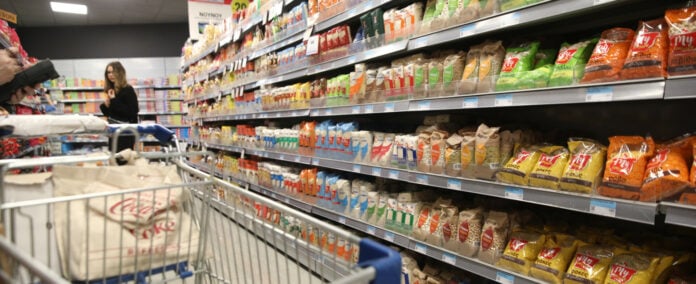Inflation is “contained” but supermarket prices remain high. More specifically, despite the downward trend in the consumer price index, food prices are still recording a rate higher than 7%, raising the accumulated rate of price spike during the crisis above 27%.
The slowdown in the growth rate of the harmonized price index recorded by Eurostat in most European countries is not felt in the family budgets, as the ongoing price increases – in many cases double-digit – in basic goods are strongly reflected in the citizens’ pockets.
According to the latest data, Greece shows a higher rate of increase in food prices compared to the Eurozone average. More specifically, Greece had the second worst performance in January.
The first month of the year ended with a change of 7.1%, compared to 5.7% in the Eurozone. Germany stood at 5.1%, Italy at 5.6% and the Netherlands at 4.2%. Only Malta had a worse performance than Greece (+8.7%), while Cyprus showed one of the best performances, with the sectoral index held at 3%.
One of the main reasons why there was a decline in the rate of price growth in January (note: the harmonized index in Greece stood at 3.2% compared to 3.7% in December) was the drop in energy prices.
The specific index fell 6.4% in Greece (from a 4% drop in December), which is mainly attributed to the continued de-escalation of natural gas prices and, by extension, electricity. Electricity tariffs were lower in January compared to December.














